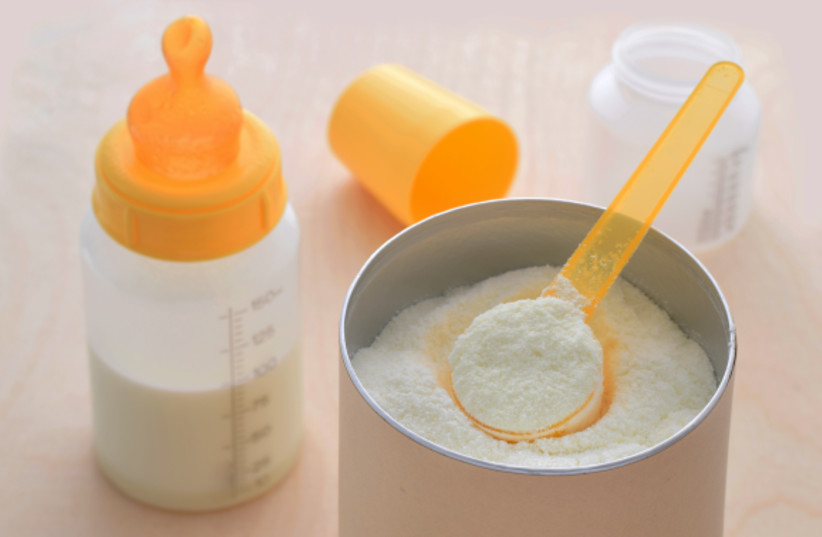Earlier this year, families around the world lamented the shortage of baby formula, which left many bereft of the nutritional staple. While global supply and prices of infant formula have since begun stabilizing, thousands of Israeli families are still struggling to meet the cost of the critical natal foodstuff. This has led the National Food Security Initiative, funded by the Welfare Ministry together with long-standing charity Colel Chabad, to launch an initiative to provide and deliver baby formula to the homes of families in need.
Baby formula is one of the most commonly shoplifted items, according to data presented at the announcement of the initiative’s new phase. This illustrates the critical role that baby formula plays in family life, and the desperation of less-fortunate families who need a way to feed their children.
As the organization implementing the initiative, Colel Chabad has committed to the distribution of no less than 180,000 containers of infant formula, with over 3,000 eligible families receiving five packages of 700 grams each month for free. Participating families will be able to call a hotline or go online to request the support for the type of formula they use, with the containers delivered to their home within three working days.
“Our goal for all these years has been to identify areas where there is a particular need that might otherwise be overlooked and be there to respond,” said Rabbi Sholom Duchman, director of Colel Chabad. “To identify even a small percentage of the population that needs a very basic need. That’s what this program is about. To think that otherwise honest and law-abiding parents are being forced to steal to feed their children is something which can’t exist in our modern society.”
Welfare Minister Meir Cohen applauded the initiative’s efforts to aid struggling members of Israeli society, and the important role that struggle plays in maintaining a just society.
“Our goal for all these years has been to identify areas where there is a particular need that might otherwise be overlooked and be there to respond. To identify even a small percentage of the population that needs a very basic need."
Rabbi Shalom Duchman

“To witness the pain of young mothers who are trying their utmost to care for their families, but continue to face daily challenges to simply feed their children, reminds us of how we are obligated as a nation to provide our citizens with a safety net in difficult times,” he said. “If we aren’t able to provide for the needy members of our society, then we won’t be able to thrive and grow as a country.”
One mother's story
V, a single mother of two who attended the announcement meeting, explained how her monthly salary as a store cashier is almost entirely used up as soon as the monthly rent transfer is made. “I do everything I possibly can for my children, and I work hard, but we literally live moment to moment and I have no idea how I’m going to manage the next set of bills,” she said.
V’s struggle to stretch her income between paychecks (to “finish the month,” as many Israelis call it) is far from uncommon. According to the World Inequality Report 2022, the average Israeli’s income is NIS 223,040; for the bottom-earning half of the country, though, that number plummets to NIS 57,900. Representing one of the world’s highest income wage gaps, Israel’s bottom 50% of earners make 19 times less than the top 10% – and that half of the population is often struggling to make ends meet.
For that reason, parents like V stand to benefit greatly from the initiative and its mission. “This type of help provided by the food security program is so important for so many parents and gives us the help we desperately need with care and respect,” she said.
